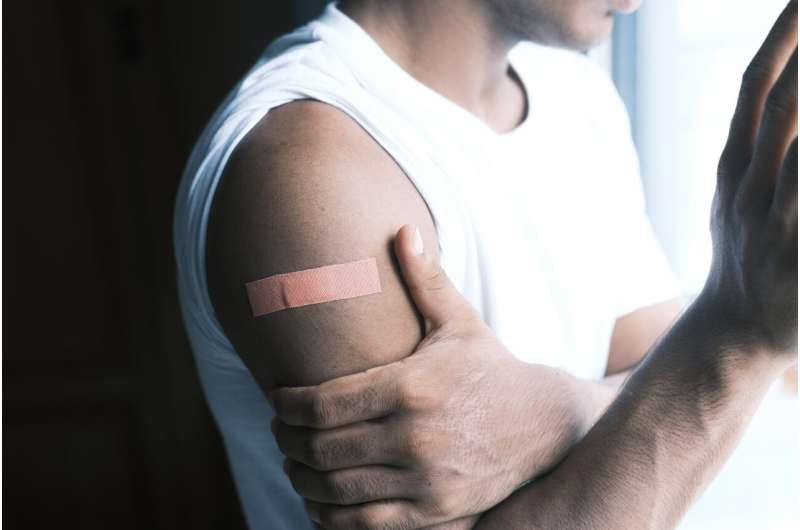This article has been reviewed according to Science X's editorial process and policies. Editors have highlighted the following attributes while ensuring the content's credibility:
fact-checked
peer-reviewed publication
trusted source
proofread
Relationship education can reduce STIs and risky sex among young gay, bisexual men

New research from Northwestern University has shown that educating couples, rather than individuals, may be a highly effective strategy to end the HIV epidemic.
The study, published recently in the Journal of Consulting and Clinical Psychology, found that relationship education can benefit young same-sex male couples by reducing the occurrence of sexually transmitted infections and sexual risk behaviors.
The report analyzes outcomes from the first randomized controlled trial of 2GETHER, a relationship-education and HIV-prevention program, and finds the program improves both biomedical and behavioral indicators of HIV risk.
"Since my team and I started working with young male couples through the 2GETHER program in 2015, our goal has been to provide relationship skills that address the specific and culturally relevant needs of sexual minority men with romantic partners," said Michael Newcomb, the paper's first author and director of the 2GETHER program.
"We hypothesized that we could address the high rate of HIV transmission that occurs in primary sexual partnerships among young men through teaching skills like healthy communication and coping strategies. The effectiveness of this randomized controlled trial tells us that 2GETHER indeed succeeds in reducing key risk factors for HIV."
Newcomb is an associate professor in the department of medical social sciences at Northwestern University Feinberg School of Medicine and a member of the Institute for Sexual and Gender Minority Health and Wellbeing (ISGMH).
Newcomb's team conducted a comparative effectiveness randomized controlled trial of 2GETHER between 2018 and 2020, enrolling 200 couples—400 individuals—into either the 2GETHER program or the control, which included a single HIV testing and risk-reduction counseling session.
The 2GETHER program, by contrast, offered five sessions of virtual couples-based interventions including three group sessions targeting skill-building, a couples session focused on communication skills and problem solving, and another focused on sexual health.
At a 12-month follow-up with study participants, the researchers observed significant effects of the 2GETHER intervention relative to the control group. 2GETHER participants had significantly lower odds of testing positive for rectal STIs and reported fewer condomless anal sex acts or partners compared to the control, both factors that contribute to overall HIV risk.
2GETHER participants decreased their collective positive STI rate from 9.8% to 0% across 1 year, while in the control group, the STI positivity rate did not change. 2GETHER participants also decreased their numbers of condomless anal sex partners by 81% compared to the control's 62%.
"Our findings suggest that we can help young gay and bisexual men reduce their risk for HIV through couples-based relationship education and HIV testing," Newcomb said. "As public health departments, HIV service providers and researchers alike continue to work toward ending the HIV epidemic in the U.S., we should all take into consideration the positive and protective influences that romantic partnerships can provide young sexual minority men."
More information: Michael E. Newcomb et al, Biomedical and behavioral outcomes of 2GETHER: A randomized controlled trial of a telehealth HIV prevention program for young male couples., Journal of Consulting and Clinical Psychology (2023). DOI: 10.1037/ccp0000823




















